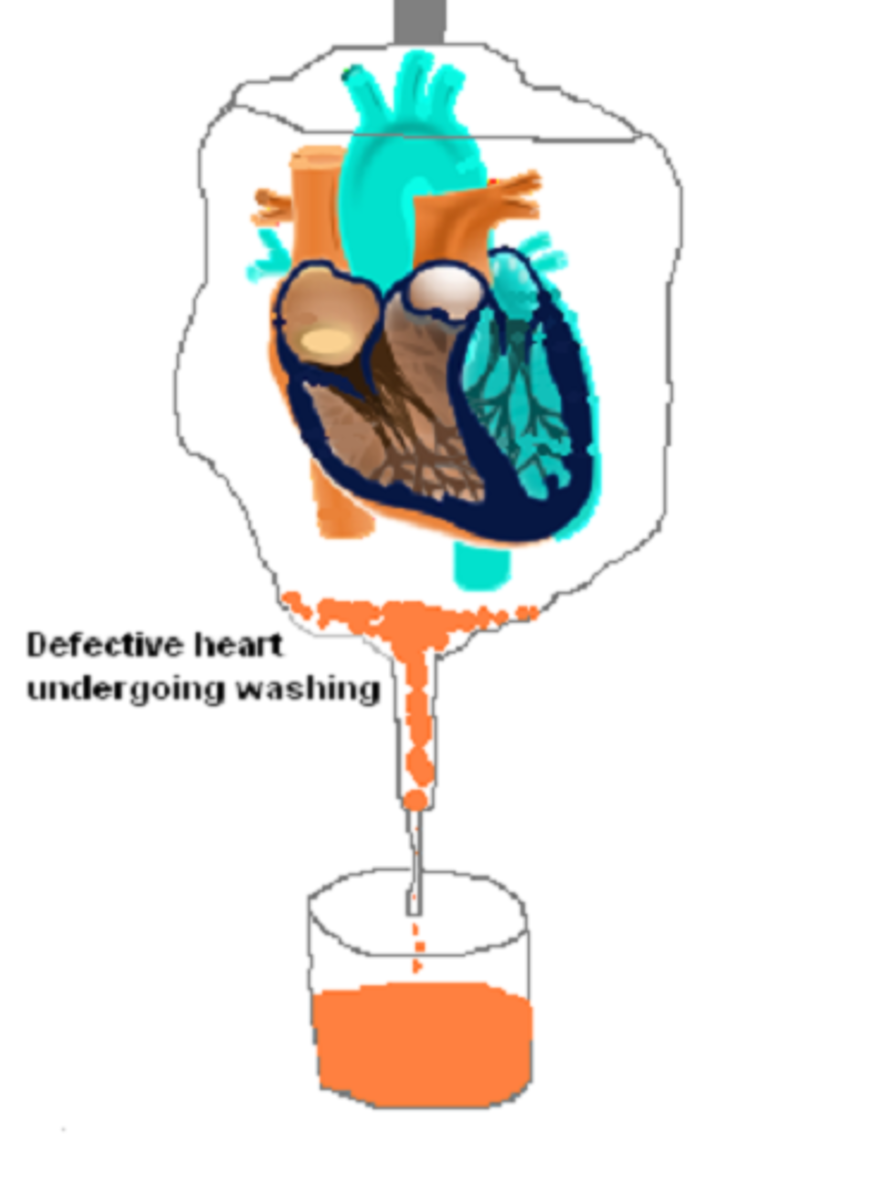Banking Your Baby’s Cord Blood | The Opportunity of a Lifetime?
The Umbilical Cord is Life-Sustaining, Powerful and Available One-Time Only for Expecting Parents

So many choices, so little time...

There is Much to Consider During Pregnancy
Expecting a baby is a joyous time, but can be overwhelming, too! There are so many choices for moms to make from what to eat to what to wear - even to what colors to choose for the nursery! But one decision that no parent should take lightly relates to banking your child’s cord blood.
While this may sound like a strange or even scary thing to do, there are many reasons why it’s a medical positive and worthy of some serious consideration.
Why is it so critical to educate yourself now? Simply because you only get one chance!
What is Cord Blood Banking?
Cord blood banking is when the blood in your baby’s umbilical cord is collected at birth and sent to a specialized lab for long-term storage. The process is both simple, painless and handled easily by your doctor or mid-wife.
Once collected, stem cells contained within the blood can be harvested and saved for medical use if a need for them should arise in the future, such as in the case of disease or tragedy. And these cells are good stuff – that can prove an advantage for your growing family.
Don't just cut the cord - collect it!
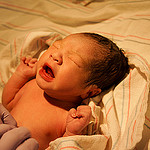
Why is Cord Blood an Asset?
The fact is, the umbilical cord, rich in these blood-forming cells, can be used toward transplants for patients with leukemia, lymphoma and many other life-threatening diseases, as evidenced in CNN’s Should you Save Your Child’s Cord Blood?.
These stem cells, having special potency toward curing diseases now, will only deliver more health applications in the future as research on their use continues.

Why Bank Cord Blood?
While banking cord blood may feel like a “weird” thing to do, it is actually more of a matter of practical science. As parents, our very purpose is to protect, love, and keep our children safe from harm. Banking cord blood is a sort of insurance toward that end - that may end up impacting your family in ways you could never imagine.
Stem cells are available for the taking at the time of birth, but many parents are missing this opportunity to collect and store – for their own children, future children, family members and even for others should public banking be something you might consider. If you don’t bank, the potential of these super little cells are lost.
What We Wouldn't Do to Keep Our Kids Safe...

The umbilical cord. Who knew?
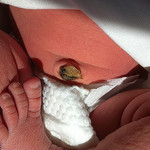
How Do Stem Cells Work?
Stem cells are basic to life and are cells in the youngest, purest form. They exist in tissues, organs, blood, and in the immune system and have the unique ability to regenerate and develop into more specialized nerve or blood cells.
This amazing ability makes them infinitely valuable in medical treatments. When transplanted to a human body, stem cells can repair or replace diseased or damaged cells, improving health and even preventing death.
Siblings - present and future

Who Can Stem Cells Benefit?
Not only will these stored cells be a match for the child they come from, but they have a higher probability of being a match for siblings (present and future) and possibly other family members, should these individuals ever need cell transplants.
They can also be donated to others that need them - people that otherwise may die - or used to further research at any time, if the owner chooses such options.
Their benefit can make a tremendous impact, if only utilized. If not banked, their usefulness ends in the birthing room.
Family Members, Patients in Need and Researchers Can Benefit

Stored blood or stored hope?

What Diseases May Stem Cells Be Used to Treat?
Stem cells currently are used to treat over 70 diseases including genetic disorders and cancers, as detailed in the emotional video below. According to research like that presented on SciELO in the abstract Hematopoietic stem cell transplantation: clinical use and perspectives, cord blood is becoming the fastest growing source of stem cells used for pediatric transplantation. Now used in the treatment of leukemia and other cancers as well as in bone marrow transplants, close behind will be the application of stem cell benefit toward stroke, diabetes, Alzheimer’s and many other prevalent and rare diseases.
The Applications of Stem Cell Transplant
The simplest of protocols.

About the Procedure
The procedure, as stated earlier, is really quite simple and very easy for mom and baby. Your doctor, nurse or midwife, will simply clamp the umbilical cord after you deliver, and extract from it the remains of blood inside. This blood will be packaged in a bag and sent to your lab of choice for storage.
It does not add any discomfort to mother or newborn and will not disturb any part of the delivery process. Parents are usually even unaware it is taking place, as demonstrated in the very informative video below.
Cord Blood Banking: The Stunning Truth.
What Are the Costs of Cord Blood Banking?
Costs at different banking facilities vary, but in general, private cord blood banking is not exorbitant, considering the benefit of having access to your own child’s stem cells. However, for young families, the price of private banking can certainly factor into the decision making process.
At private cord blood banks (banks that will store cord blood for your private use), the costs usually range from $1,000 to $2,000 for the initial banking. Payment plans are often available. Then, there is usually an additional fee for continuing to store the blood each consecutive year, around the price of $100.00.
While this may seem like a lot of money to parents just starting out, for me, it eventually became another expected yearly expense. My parents paid the initial cost for us at the time of our son’s birth as a gift, knowing these cells could benefit many members of our large extended family, if ever needed.
Public cord blood banking, or donation, is generally free and can usually be arranged through programs at your hospital.
Our deepest fears...

Are There Moral Concerns to Cord Blood Banking?
Contrary to misconceptions and as referenced in the video above, most religions have no objections to cord blood banking. This is supported even by sources like The United States Conference of Catholic Bishops website in their article Catholic Support for Ethically Acceptable Stem Cell Research.
The fact is, collecting the umbilical cord is unlike other embryonic stem cell research because in this case, the baby is already born, as evidenced by companies like Cells for Life in their Cord Blood Banking slideshow. Here, they explain that the blood that is left in the cord will only otherwise be discarded. This cord blood isn’t needed by the baby anymore, but still has the red and white blood cells and plasma needed for stem cell harvesting. During cord blood collection, the baby doesn’t experience any disturbance beyond the cord being cut as normal.
In other words, cord blood banking is a quick, painless procedure that occurs after the baby has been born using blood that is going to be thrown away. However, if you would like to read up on some of the cons raised against banking, visit the article Ethical Issues in Umbilical Cord Banking at eHow for more comprehensive information about potential disadvantages.
If Cord Blood is Not Banked, It's Amazing Potential is Wasted

It's a personal choice.
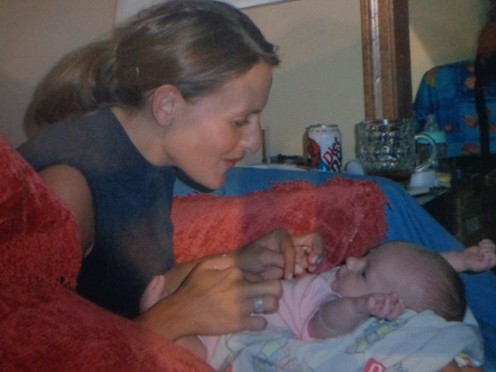
Why I Chose to Bank
I myself, having a brother with Type 1 diabetes, stored my third child’s cord blood so that maybe someday, I could help my brother, or cure one of my own children’s diabetes if they ever develop it. I hope we never need to use the stem cells we have banked for the purpose of disease in my own children, but the fact that they are there should we need them, makes me feel… prepared.
There are so many stories relating to the banking of stem cells, where lives have been greatly impacted by this research and science. To read about some of them, visit the National Cord Blood Project’s Patient & Outcomes page. I found it wholly inspiring when I was making this very same decision.
Emotional Real Life Story - Cord Blood Banking Saves Lives
Private vs. Public Blood Banking
There is private banking, which is when you save your baby's cord blood for your own family's private future use, should you ever need it. Public banking exists as well, as a means of donating cord blood to the public.
For more information on how to find a private cord blood bank, visit the links to the left. For public banking, consult the site Cord Blood Banking Basics public donation page or the website Stem Cell Research + Cord Blood Donation's article Full List of Public Cord Blood Donation Banks in the U.S. for more information.
Where To Go For More Information on Cord Blood Banking
If you are interested in learning more about cord blood banking or if you would like to research facilities for private cord blood banking, you can visit sites like Cells for Life if you live in Canada, or ViaCord or CBR Cord Blood Registry in the United States as a point to begin your search.
Alternatively, consult the WebMD article Cord Blood Banking: Deciding About Public or Private Donations for more information about the option to bank publicly, if making your baby's cord blood available for public use might seem like a better option for you. As well, consult the links in the sidebar to the right for assistance toward finding a public bank.
Either way, cord blood banking is a great resource available only at birth and new parents should at least consider it as their option to take. Good luck with your pregnancy and thank you for reading!
Cord Blood Stem Cells Are Yours for the Taking, To Keep or Give
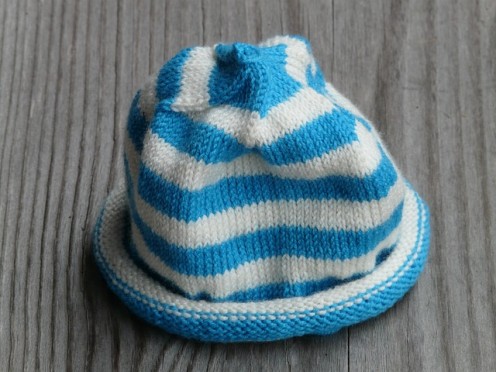
What Do You Think?
Have You Ever Banked a Child's Cord Blood?
Would You Consider Banking Your Child's Cord Blood?
What Would Be Your Biggest Deterrent?
Products You Might Like:


Who Knows What the Future Holds - Surely, Many Great Things!

Related Reading on HubPages
- Umbilical Cord Blood
Many people do not realize the importance of umbilical cord blood. This blood is rich with blood-forming stem cells. There are many diseases that are currently being treated with umbilical cord blood. - Cord Blood Banking, Fish Oil Supplements and Other T...
Planning a family is a huge responsibility and there are several things that potential parents should take into consideration. Cord blood banking, baby investment accounts and bottle or breast feeding are some of the major things that should be discu - Umbilical Cord Blood Banking Pros And Cons
On the fence regarding the pros and cons of umbilical cord blood banking? Unsure what benefits and costs may ensue? Look no further! This brief and succinct guide allow you to make up your mind in 30 seconds flat!



